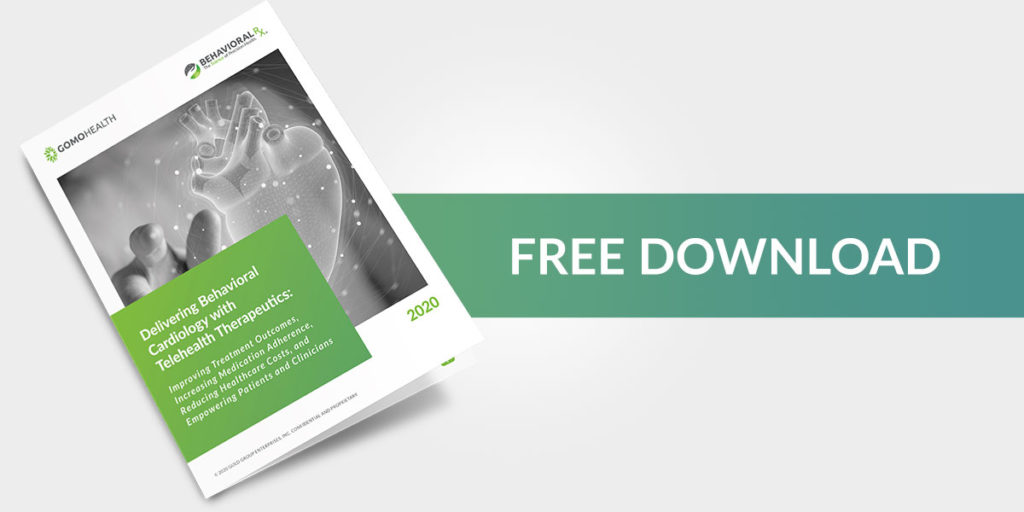3 Important Tips for Improving Adherence to Cardiovascular Medications
As cases of cardiovascular disease increase in the United States, there continues to be a problem with medication adherence among a considerable portion of this patient population. Data from the American College of Cardiology indicates that nearly half of all Americans suffer from some sort of heart disease. In the meantime, data from the American Heart Association reveals that 24 percent of patients who suffer a heart attack do not fill their medications within seven days of discharge, and 34 percent of heart attack patients with multiple prescriptions stop taking at least one of them within one month of discharge.
Inadequate adherence leads to increased exacerbation of these conditions, increased fatality, escalated hospital readmissions, and inflated costs to care providers and hospital systems. To that end, it’s imperative that clinicians find ways to increase medication adherence among their patients. One of the first steps to accomplishing this task is identifying some of the issues that lead to poor adherence and how to address them. With that in mind, let’s discuss some improvable areas of cardiac medication adherence, and what can be done between patient and provider to address them.
Lack of Proper Post-Discharge Planning and Guidance
The period immediately following hospital discharge for a cardiac patient is particularly important when it comes to medication adherence, yet nearly 25 percent of patients are partially or completely non-adherent in filling their prescriptions after they leave the hospital. About 30 percent of the prescriptions for diabetes, elevated blood pressure, high cholesterol and other cardiac-related conditions are left unfilled. One primary reason for this initial lapse is lack of comprehension. Post-discharge medication regimens should be conveyed in an easy-to-understand manner, so patients are comfortable with their post-discharge instructions, preferably at seventh-to-eighth grade reading level.
Cost-Prohibitive Prescription Prices
The reality is that many Americans can’t afford their prescriptions, a problem that is often compounded for patients with cardiac issues. There are clear and documented socioeconomic factors that disproportionately lead to heart failure among lower-income patients, such as the consumption of more affordable processed foods, lack of money for routine doctor’s visits, decreased education, and higher stress and anxiety related to their jobs. The irony is that, once diagnosed, many of these patients are unable to afford their prescriptions.
As the cost of prescription drugs continues to increase, providers can do more peripherally to help patients access resources that make meds more affordable. For instance, in one study published in the Journal of Population Therapeutics and Clinical Pharmacology, over half of all patients stated that their provider never asked if they could afford their medications. Providers can connect patients with affordability and relief programs and do some extra legwork in comparing prices across pharmacies in patients’ immediate locales.
Increased Long-Term Provider Engagement
This is, perhaps, the most valuable and enduring asset in improving medication adherence among heart patients. As time goes on after immediate hospital discharge, patients commonly exhibit less and less adherence with their daily medication routine. Up to 50 percent will discontinue blood pressure medications within six months to a year and less than 40 percent continue statin medications for two years after hospitalization for acute coronary syndrome. It’s imperative that providers offer ongoing comprehensive engagement beyond the traditional office visit that helps them keep medication adherence top of mind, while providing them with valuable resources of patients can avail themselves to make it easier. Mobile text messaging and other telehealth therapeutics have proven to be remarkably effective means of quickly and easily facilitating this engagement.
The Centers for Disease Control and Prevention (CDC) as well as multiple other sources have pointed to the positive impact text messaging and other digital interventions have had in helping patients improve their medications. These interventions should cover a broad and clinically appropriate range of areas, such as information about potential side effects, importance of proper adherence, lifestyle measures to supplement medications’ benefits, affordability resources, and much more, depending upon each patients’ specific care needs.
Learn more about Personal Concierge for Cardiology Programs »
GoMo Health has helped numerous care providers and hospital systems significantly increase medication adherence for many disease states, including heart failure. Most recently, we collaborated with The Heart House to implement our Personal Concierge™ program to help improve adherence and overall treatment outcomes.
VIEW PROVEN RESULTS WITH OUR LATEST WHITE PAPER AND LEARN MORE ABOUT CARDIAC IMPLEMENTATION OF PERSONAL CONCIERGE™
Download our white paper created in collaboration with The Heart House, detailing their Cardiac Concierge Care Program. Learn how the program measured a 98% medication adherence rate (versus 40-50% for the national average) and a 43% decrease in tobacco use following program enrollment.








Find Us Online